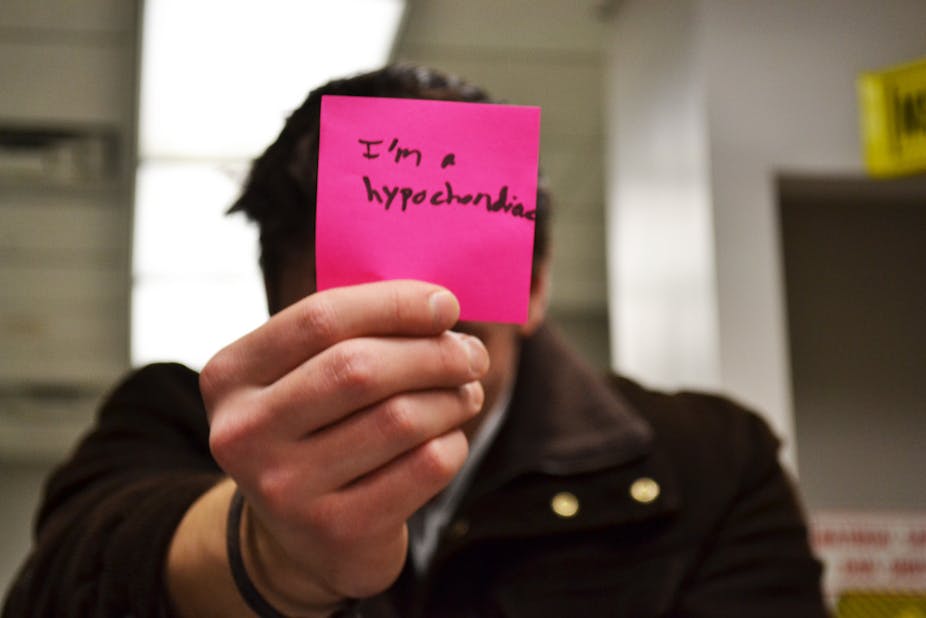We’ve all heard the warnings against googling your symptoms in search of a diagnosis: you’ll uncover a range of daunting illnesses and launch into panic-mode over something like a measly cold. There is even a term to describe the compulsive searching for information about symptoms of illness online: cyberchondria.
Our research shows the plethora of health information online isn’t something we should necessarily be worried about: for the most part, it complements the role of medical practitioners and helps patients make more informed decisions.
But when it’s combined with poor health literacy, problems may occur.
Why do we google symptoms?
Our study found that online self-diagnosis of symptoms is now a normal, everyday activity. People have always sought information and diagnoses from other sources, often before they decide to see their doctor. The internet is an extension of this practice.
Concerns have been raised that online self-diagnosis websites encourage people to self-medicate. Again this is not new; self-medication with over-the-counter and alternative medications has always been part of people’s health strategies.
Our research found that people are not googling their symptoms as a replacement to their GP. Rather, they use the internet as an additional source of information to learn about their health condition and make decisions about treatment options.
Ultimately, consumers tend to feel more confident about their health care decisions when they are actively involved in the decision-making process. One interviewee said:
I look on the internet always. I don’t always trust what you read in there. You can’t always do your own diagnosis. Then I’d definitely go to my GP, and we’d have a discussion about it [and] whatever advice she gives me, I’d probably take it.

The internet was just one of many sources of information that participants drew on when seeking to learn about their symptoms. They also talked to family, friends and colleagues, read newspapers, listened to the radio and used Facebook or chat rooms. As one interviewee said:
I’d go online or phone a friend [then] I’d talk to the doctor. The doctor might say something, and I might think, oh I don’t know whether that’s right. I wonder what [my friend] thinks. I might get some sort of diagnosis from the doctor and then say “oh, well that’s interesting, but I’d like to do a bit more research on that”, or ask somebody that’s had that problem.
Our research found that participants were aware that not all online sources are reliable and were cautious about where they searched for information.
Improving health literacy
As we gain increasing access to the growing volume of health information online, there is a growing imperative for consumers to gain the skills and knowledge to understand online information.
However, an estimated 60% of Australian adults have poor health literacy and may struggle to make sense of the information they find on the internet.
People with low healthy literacy have more dependence on health services and providers because they are less able to self-manage chronic health conditions and have less knowledge about the links between health and lifestyle behaviours such as nutrition, exercise, alcohol and smoking.
Health care is a big business and some online information is focused on generating profit rather than providing evidence-based advice. Sometimes, the distinction between business and information is not clear.

Health care providers can help. They can direct people to websites from recognised health organisations such as Healthinsite, Better Health Channel, MayoClinic and NHS Direct.
Some health care providers and advocacy groups are now using social media sites such as Facebook, Twitter, Youtube and mobile apps to provide quality health information to consumers. In an environment where there are multiple sources of information – and not just the authority of medicine – health care providers are increasingly realising they can’t ignore social media.
Online information, including social media, needs to be part of health care workers’ approach to providing high-quality health care.
For those with high health literacy, credible online information is a valuable addition to their health care regime. Health care workers can assist those with lower health literacy to use online information.

